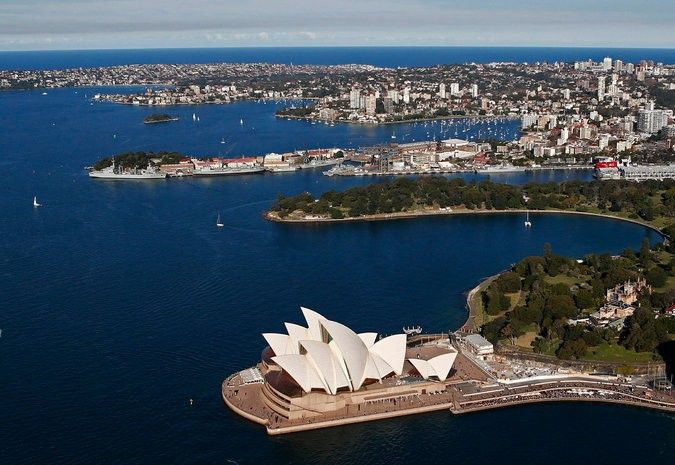Australia orders selling of illegal residential properties by foreigners; Banks warned about rampant money laundering in real estate

Australia has intensified crackdown on illegal foreign owners of residential property in the country, by ordering the selling of such properties even as banks and law enforcement authorities are being warned about the risk of real estate becoming a conduit for money laundering and financial crimes. The crackdown on foreigner buyers followed the abuse of home-ownership laws by buyers from China and elsewhere.
Treasurer Joe Hockey said foreign investors have been ordered to sell six properties in Sydney, Brisbane and Perth, which were valued between AU$ 152,000 and AU$1.86 million, reports Wall Street Journal. The probe on such properties had unearthed cases of 462 possible breaches of rules relating to foreign homeownership. The government stepped up enforcement after its budget in May.
Money from China and Southeast Asia had been fueling the housing problem in Australia with prices going overboard and making housing properties unaffordable for the local population. In April, Australia’s Foreign Investment Review Board announced that China had overtaken the US as the biggest source of investment from overseas, with a total of AU$27.6 billion getting invested in 2014, of which real estate topped with half the money.
Amnesty and penalty
The government is pursuing more such offenders. At the same time, the government is benign as the Treasurer said there is time for foreign investors until Nov. 30, 2015 to voluntarily disclose any illegally purchased residential real estate in Australia and get amnesty for the same. Meanwhile, the Treasurer is also readying a new legislation to be introduced in federal parliament to increase penalties for foreign investors who break the rules. Under the new regime, non-residents, who illegally acquire established properties will face a maximum fine of AU$127,500 or three years of imprisonment. They will also forfeit the capital gain made on the property at the rate of 25 percent of the purchase price or 25 percent of the market value, whichever is higher. In all illegal transactions, third parties--such as real-estate agents and financial advisers will also be prosecuted for assisting unlawful purchases.
Money Laundering
Meanwhile, a software company in the U.K, pursuing a new approach to anti-money laundering with big data, has warned Australian banks and law enforcement agencies to be more careful as the real estate sector is becoming a hotbed for financial crime. Alexon Bell, British anti-money laundering expert from business analytics and intelligence Software Company SAS warned that student accounts and real estate are to be watched out as they are the new avenues for money laundering.
"It's a funnel for organised crime groups to start getting money into the country. There's going to be a bunch of stuff going on with property transactions in Sydney that's not right," he said. Another source for money laundering is gambling industry. In Australia, the gambling industry is in the size of more than AU $25 billion and is a high-risk sector in terms of money laundering.
In tackling money laundering in real estate, the Financial Action Task Force’s report published in April had reported a "lack of focus” and called for steps to address risks emanating from the abuse of complex corporate structures and real estate by various local authorities.
The company, SAS follows a "hybrid approach" to AML and incorporates predictive modeling, using information from previous money laundering and fraud cases, database searches and social network analysis. Bell claimed that big data approach has been successful in detecting 30 percent more incidents of fraud by setting up AML alerts.
The Australian Institute of Criminology had estimated that money worth AU$4.5 billion is laundered every year in Australia. Despite regulations that encourage companies to take a proactive approach in anti-money laundering, Bell said, Australia is still lagging behind Europe.
(For feedback/comments, contact the writer at feedback@ibtimes.com.au or let us know what you think below)





















